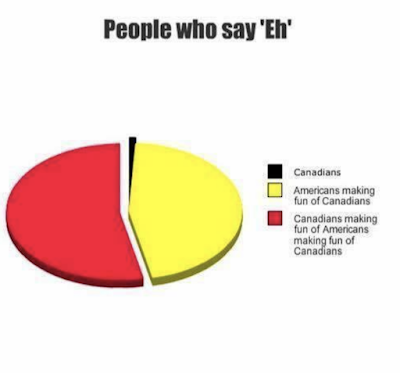Published In The Great North Arrow, September 2020: I’m Canadian, eh? Sorry
- jim Young
How do you spell Canada with 3 letters?
You’ve got your C, eh?
and your N, eh? &
and your D, eh?
I’m Canadian, eh? Sorry.
When I say “sorry”, I’m not really apologizing for being Canadian. I am proud to be a Canadian. Damn proud!
So why would I say “Sorry”?
Canadians are known for being polite. (Sadly, not ALL Canadians are polite ALL the time, but overall it’s just one of the idiosyncrasies we’ve become known for.) So while it might seem that I am apologizing for being Canadian I am really just apologizing in case you are, for some unknown reason, offended that I am a Canadian.
Canadians politely apologize so much that most provinces have adopted an “apology legislation” which states that “an apology does not constitute an admission of fault or liability following an accident.”
Just like, “I’m sorry that you may be offended that I am a Canadian”, when I say “Sorry”, following a fender bender, I am simply saying “I am sorry that your car was damaged in this accident that YOU caused.”
I really am sorry that it’s raining today and spoiling your plans. It’s not my fault that it’s raining, mind you, but as a Canadian, I feel empathy and I feel badly that your plans have been spoiled. So - “Sorry”.
This kind of politeness also explains the usage of the word “eh” at the end of a sentence.
“That was a great hockey game, eh?”
As Canadians, we don’t like to force our opinions on you. Instead of just telling you it was a great hockey game, we will suggest it was a great hockey game and add “eh” at the end to warmly invite you into the conversation to offer YOUR opinion of it.
We could be saying, “That was a great hockey game, wasn’t it?” or “That was a great hockey game, don’t you agree?” But “eh” is so much simpler.
The expression “eh” was first used by Irish playwright Oliver Goldsmith in his play “She Stoops To Conquer” presented in London, England in 1773. So it’s not surprising that the word “eh” is also used throughout the UK, particularly in Wales and Northern England as well as parts of Scotland and Northern Ireland.
Besides Canada, “eh” also emigrated to New Zealand.
By the mid 1800s however, the word had found its way to common usage in Nova Scotia as reflected in Thomas Chandler-Haliburton’s “The Clockmaker”, a series of sketches published in 1836.
Today, in the United States you’re most likely to hear the word “eh” in a TV show or Movie that has a Canadian character in it. Or on stage when a comedian is poking fun at Canada.
Unless, that is, you live in Michigan, Wisconsin and Minnesota where it is also commonly used.
No doubt it’s usage in these states is a result of their close proximity to Canada - specifically Ontario and more specifically, Northern Ontario where “eh” is most commonly used.
Linguists suggest the use of the word “eh” is declining in Canada and some will argue that it never was popular in some provinces in the first place.
However, now that it is well ingrained as a stereotypical quality of Canadians, its usage by Americans and even Canadians to portray a typical Canadian will likely continue.
But that’s okay. We Canadians can poke fun at ourselves, right?
- 30 -




Comments
Post a Comment